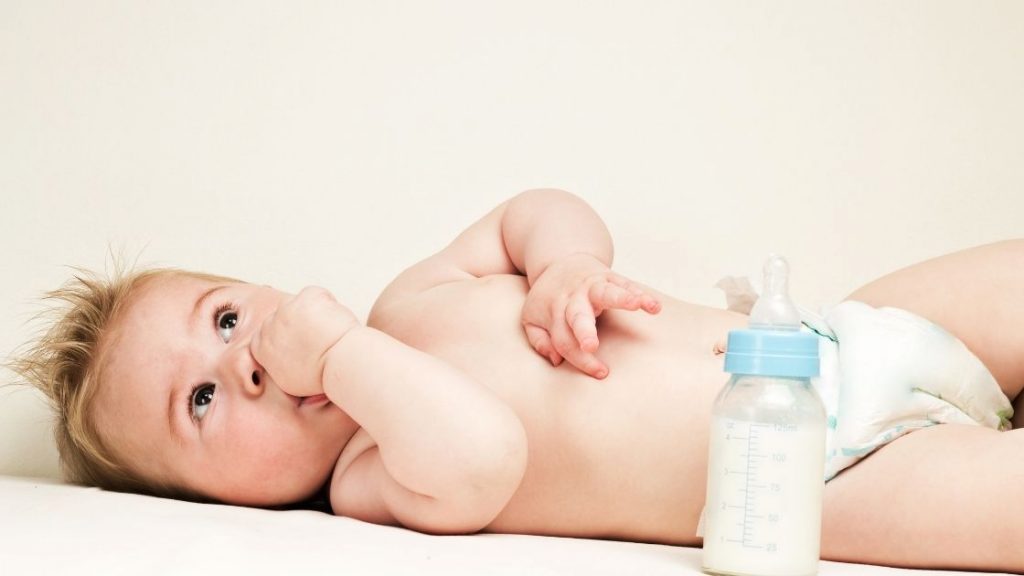Being a first-time mother is tough.
Not only that you have to take care of a little human being who is so fragile but you don’t even know if your little human being is comfortable and pleased with what you do.
And trust me, the cry doesn’t help. It only makes it worse.
Whenever I heard my son cry, I went through a procedure: check his breathing, check his heart rate (yes I know it sounds crazy), check his diaper, check if he had gas or needed to burp, check if he was hungry, check his neck, his belly, his back to see if he was hot, etc.
And only when I’m lucky, I find the root cause of his cry. Otherwise, I would be carrying him around the house, rocking back and forth while trying to breastfeed him.
It took quite some time to build the connection between us so that I could tell what he was fussy about, but we got there.
More than 2,000 times I looked at him in his sleep and wondered, if I had fed him enough and if he was full. Many times I noticed he made some baby hunger cues while sleeping and I was concerned if I should wake him up to feed him.
If you are a first-time mom, and you are having the same question, you are at the right place. I am going to list down the hunger cues and what to do if you find your little one is having some baby hunger cues while sleeping.
Ready? Let’s dive in.
Common baby hunger cues
Early baby hunger cues
- Fists moving to the mouth.
- Turning head to look for the breast. This is the baby's reflex to find the mother. In the first weeks after birth, when the mother touches the baby's cheek, the baby will immediately turn its head to the touched cheek’s side.
- Becoming more alert and active.
- Sucking on hands or lip-smacking.
- The mouth opens and closes frequently.
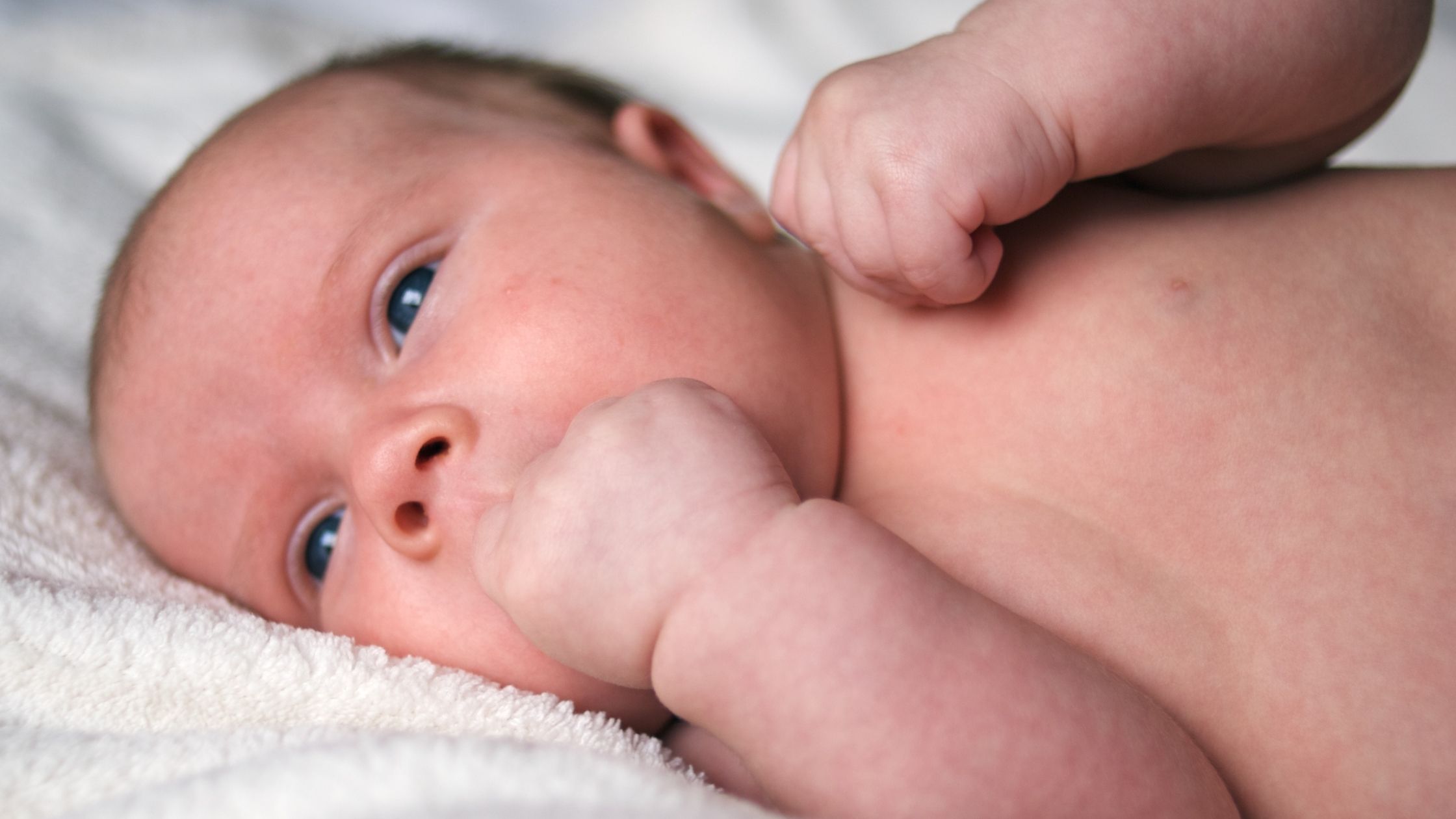
Next baby hunger cues
- Bury his head in the chest of the person holding him
- Trying to get attention by pulling clothes
- Moving limbs, swinging continuously
- Smashing the arm or chest of the person holding him
- Crying
- Moaning or mumbling
- Eye movements, if you see that the baby’s eyes are still closed but they are moving fast, it is a sign that the baby is demanding more food.
- Wake up, and then immediately fell asleep very quickly
- For babies over 4 months old, the baby may even smile while being breastfed. This means that the baby is very interested and wants to continue to breastfeed.
Late baby hunger cues
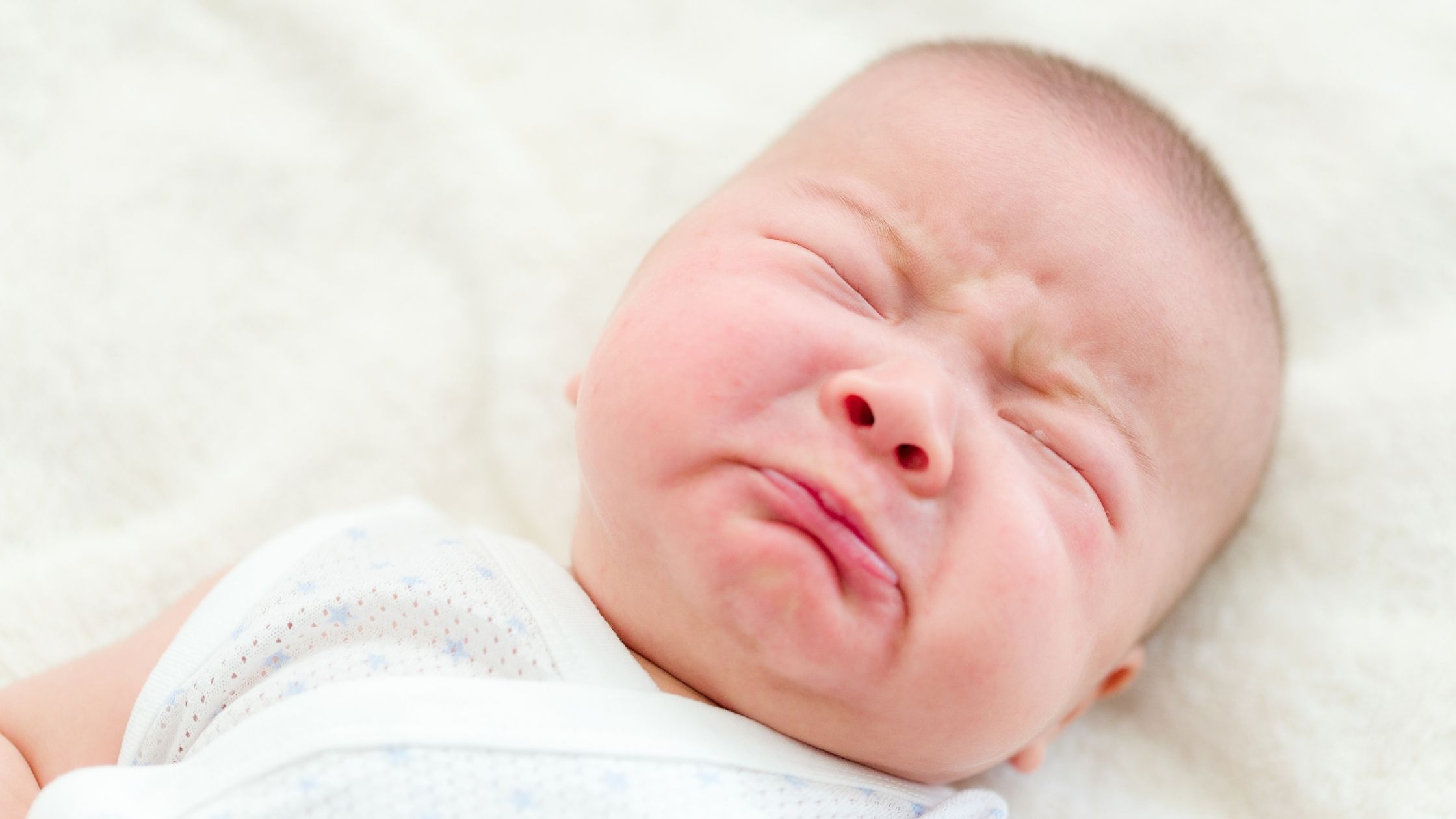
- Move the head repeatedly over and over again
- A fussy baby is the last sign for a mother to know that the baby is hungry. However, a crying baby can also be a sign of other problems in the baby. Hunger cries are usually quieter, shorter, and vary in volume.
When the baby cries, the mother needs to calm down the baby before breastfeeding by holding the baby, rocking, cuddling, stroking, massaging the baby and then putting the nipple in the mouth for the baby to suckle.
Because if the mother breastfeeds the baby at this time, the baby may refuse because of anger, this leads to the baby not being able to latch on well, making the mother prone to nipple pain. However, waiting until the baby stops crying to breastfeed can cause problems, causing stress for both mother and baby.
Do you need to wake up your baby when seeing baby hunger cues while sleeping?
For babies under 4 months of age, if the baby does not wake up on his own, it is necessary to wake the baby to feed when he sees the baby's eyes moving back and forth, or other baby hunger cues while sleeping.
However, many babies fall asleep in the days or weeks after birth and don't show any early signs of feeding demands that the mother can recognize. Newborn babies need to be fed as soon as they show signs of feeding, during the day at least every 2 hours, at night at least once. The mother can stop waking the baby, and let the baby adjust to his or her bedtime routine once the baby has gained a good weight like 4 ounces = 114 grams per week.
Is sucking his fingers often a baby hunger cue?
Signs of baby sucking are usually only true for babies who are in the neonatal period. After infancy, baby sucking is no longer a reliable sign of hunger. Around the 6th to 8th week, your baby will begin to gain better control of his or her own hands, begin to "explore" his hands, and use his mouth to explore things. Babies also often suck their thumbs while preparing for teething. Teething symptoms can appear weeks or even months before the first tooth emerges.
Mothers must recognize early signs that their babies are demanding to suckle, to promptly provide nutrition and help relieve the baby's hunger. This will help calm the baby and make it easier to latch on to the breast. When the baby has cried loudly is the latest sign of hunger so it will make it more difficult for the baby to calm down and breastfeed.
How do I know my newborn is full?
Mothers can tell if their baby is getting enough milk based on the following signs:
Wet diapers
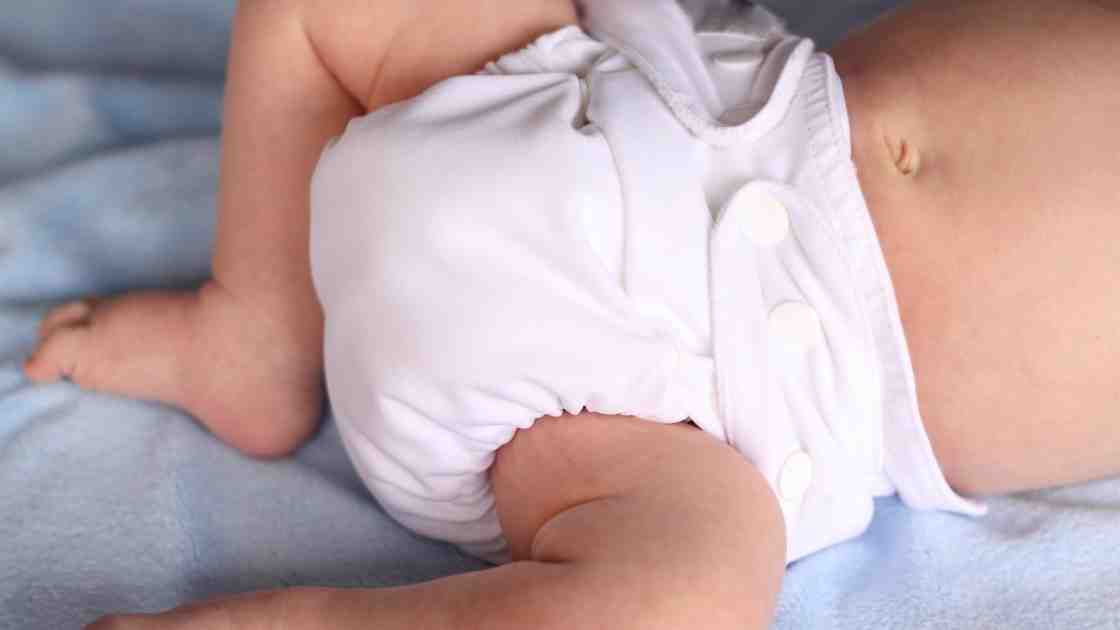
The most common way to tell if your baby is getting enough is through the number of diapers. Parents should note the following:
- In the first two days after birth, your baby needs about 2-4 diaper changes. However, from the 5th day on, this number increases to about 6-8 pieces.
- The baby's urine is pale in color and has no odor. If your baby's urine is dark, chances are he's still hungry.
Poo-poo
Having a bowel movement is one way to tell if your baby is getting enough to eat. Here are a few things to keep in mind:
- From the first 1-2 days, babies often pass meconium (thick, sticky, black or dark green).
- As your baby transitions from colostrum to breast milk, his stools will become looser, yellow, and less foul-smelling.
- During the first few weeks, your baby's stool will change suddenly about 2-3 days before passing once.
- As long as your baby changes diapers 6-8 times a day, the stools will be yellow and loose.
Weight gain
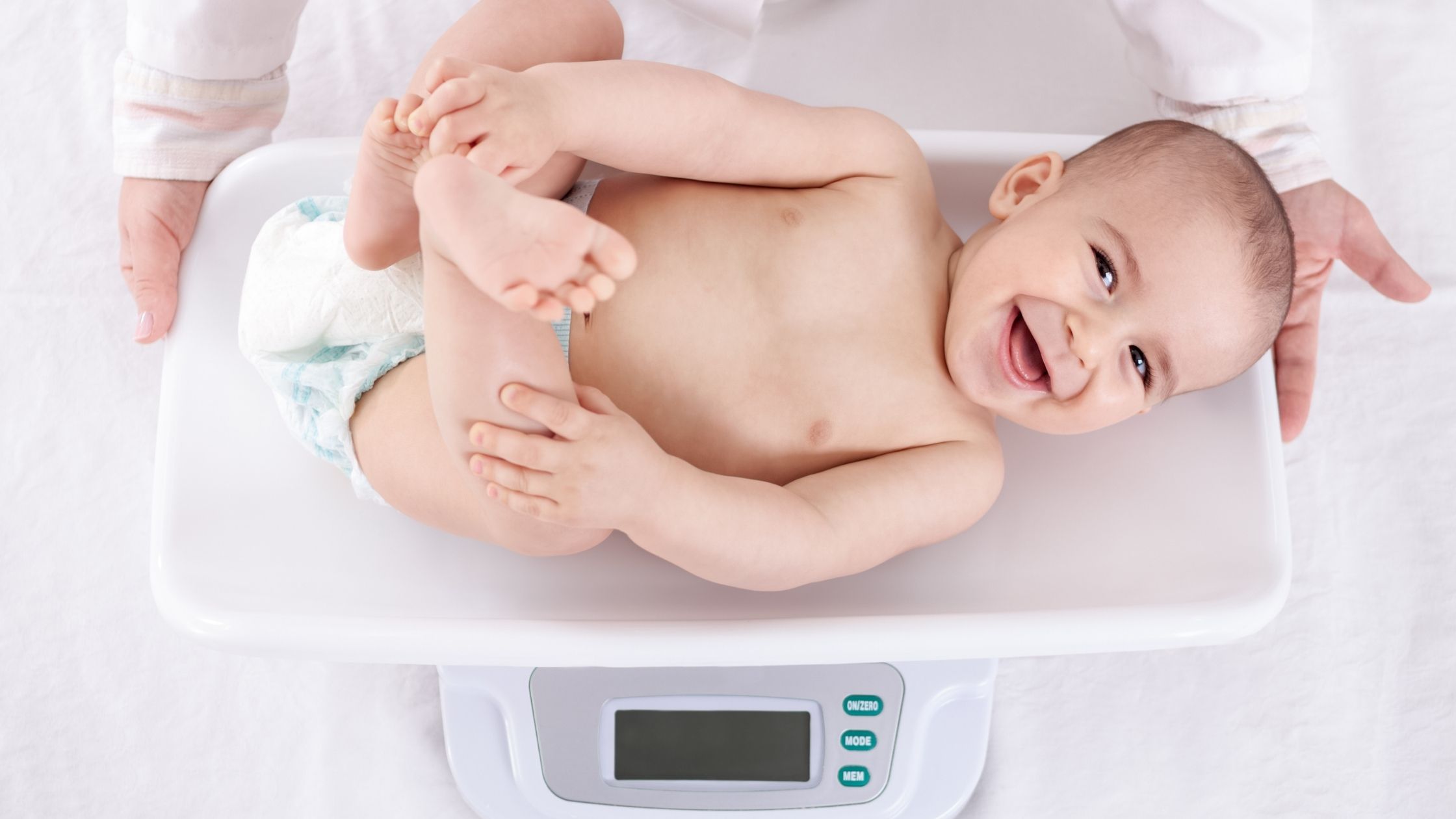
About 3-4 days after birth, the baby may experience physiological weight loss. This is completely normal and nothing to worry about. About 2 weeks later, your baby's weight will return to normal. The baby's weight, height and head circumference increase continuously, indicating that the baby is getting enough milk. Usually after the first week, the baby's weight is the same as at birth, and after that will increase 200g per week.
In addition, mothers can also recognize by signs that the breast is softer after feeding, the baby will automatically leave the breast after feeding, the baby will sleep for 2-4 hours.
Look at your baby’s hands
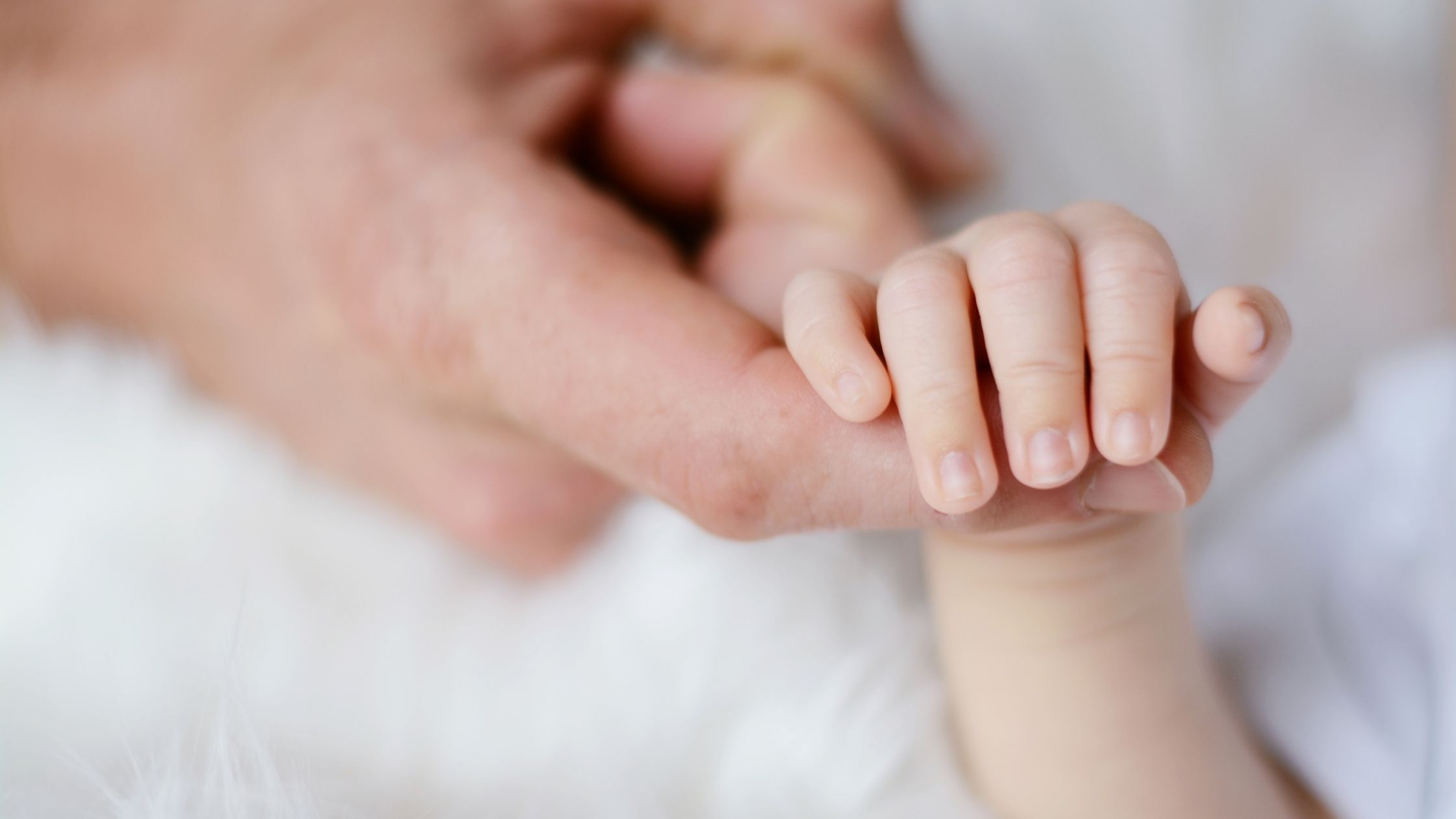
The mother should take the time to observe the baby during each feeding right from the time he is born. When hungry, in addition to crying, your baby's hands will be clenched and shaken continuously or he will even put his fist in his mouth.
At the end of the meal, the baby's hand gradually loosens and opens the whole hand. This is the sign of feeling “I am full”.
A relaxed, energized baby's body tends to relax and stretch out naturally.
Children are pleasant, happy and relaxed
If the baby has released the nipple but is still uncomfortable, the limbs are shaking or crying, the mother needs to check the following steps:
- Burp your baby
- Then invite the baby to breastfeed again.
- Check that your baby is latched on correctly and has a comfortable feeding position.
- Then let the baby continue to suckle, if the baby accepts to continue to suckle and automatically releases the breast, combined with signs of no longer fussing, then the baby is full.
Seamless baby sleep
When the baby is full, it is also the time when the baby will have a deep and good sleep. If your baby sleeps for more than 45-60 minutes (45 minutes is the minimum time for a newborn's sleep), it is a signal that the baby's milk intake is enough for sleep and play activities.
What to do if my baby has some baby hunger cues while sleeping?
Some people recommend waking the baby up to feed him, while others don’t. I don’t want to disappoint you, but there is no one-size-fits-all answer to this question.
However, if you find your baby has some baby hunger cues while sleeping, before rushing to wake him up or getting the bottle or getting yourself ready for the feeding, make sure you go through the following questions:
When was the last time my child was fed?
If the answer is around 3 hours ago or more (aka, it’s time for his next feed), then you should wake him up. If he was fed not too long ago, then go to the next question.
How much milk did he have before sleeping?
Did he have a lot of milk or a little? If he did not eat enough before his sleep, then it is likely he has some baby hunger cues while sleeping because he is really hungry.
However, for breastfeeding mamas, it is quite hard to tell how much your little one has had before his sleep. In this case, check on your breasts before and after feeding. Are they soft and feel light/ empty after the feed, or are they still hard and full? In either case, did your little one push your nipple out of his mouth to stop the feeding, or did he keep on going hard?
Once you have the answers to these questions, you can tell if your baby is hungry.
How long has he slept?
Did he sleep the entire 2 hours, or did he just do a quick 45-min cat nap? Babies who have catnaps often do not feel hungry when they wake up, especially if their moms keep on feeding them every 45 minutes.
You can argue that your child only nurses a few minutes each time. And it is true because he is not hungry, he won’t be able to nurse for a long time.
Did he pee or poop after feeding?
Generally speaking, if your child pees or poops after feeding, he is likely to be hungry quicker because it means his digestive system works well.
Let’s say that your baby has some baby hunger cues while sleeping, and you know that your child was fed 3 hours ago with the same amount of milk, he has been sleeping for 2 hours straight and his diaper is wet, then you know your child is really hungry.
And I know it is tempting to let your little one sleep longer, you should wake him up and feed him.
But if your child has some baby hunger cues while sleeping, and your child was fully fed 30 minutes ago, check his temperature, diapers and clothes to make sure he is comfortable. If everything is good to go, you can try to soothe him but let him sleep longer.
Final thought
There you have it. You know all the common baby hunger cues, how to know if your newborn is full and what to do when your baby has some baby hunger cues while sleeping.
There is not a fixed answer or ultimate guide on exact things to do, but you have to be very flexible to understand your baby’s needs and make him feel comfortable.

